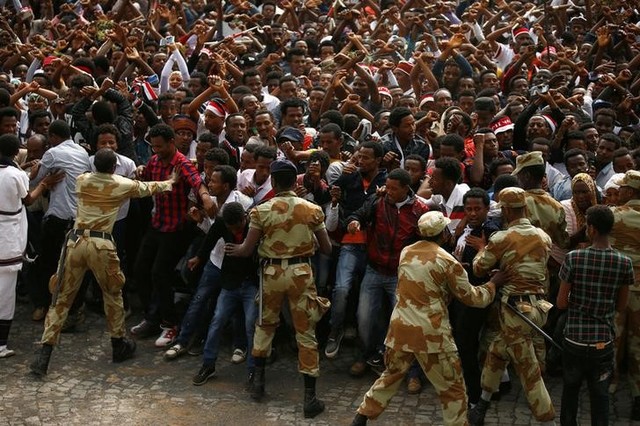Ethiopia magazine halts publication over emergency rule curbs


By Reuters
An Ethiopian English-language magazine which has been critical of the government has ceased publishing its print edition saying restrictions imposed when emergency rule was declared early this month made it “impossible” to continue.
The Horn of Africa country introduced a state of emergency on Oct. 9 after a wave of protests over land grabs and political rights, which resulted in violent clashes and attacks on both local and foreign businesses.
The emergency measures introduced for six months granted security forces more powers to make searches and arrests, and imposed curbs on the “preparation and distribution of publications that could incite conflicts”.
Tsedale Lemma, editor and founder of the Addis Standard monthly, told Reuters that printers had refused to publish the magazine unless an authority set up to oversee the implementation of the new regulations gave them permission.
“(It is) a proposal we have vehemently refused because it will subject us to submitting our editorial to voluntary censorship by a military command post,” Tsedale said, without saying what the monthly print run was.
Vendors and supermarkets have also pulled the magazine from newsstands in the wake of the announcement, she said.
The magazine continued to publish articles on its website, she added.
The United States and other major donors have raised fears about the measures, saying they may infringe on constitutional rights. Rights groups say the government has long muzzled the media, and say the latest moves make this worse.
Addis Ababa has rejected those concerns saying security efforts had now “restored peace nationwide”.
Ethiopian and foreign rights groups say more than 500 people have been killed in violence triggered by protests in the Oromiya region.
Demonstrations were initially sparked by a development scheme for the capital that opponents said would to lead to land seizures, even after the government scrapped the plan.
Protests have increasingly broadened to include demands for more political rights and unrest has spread to other areas, including parts of the Amhara region north of Addis Ababa.